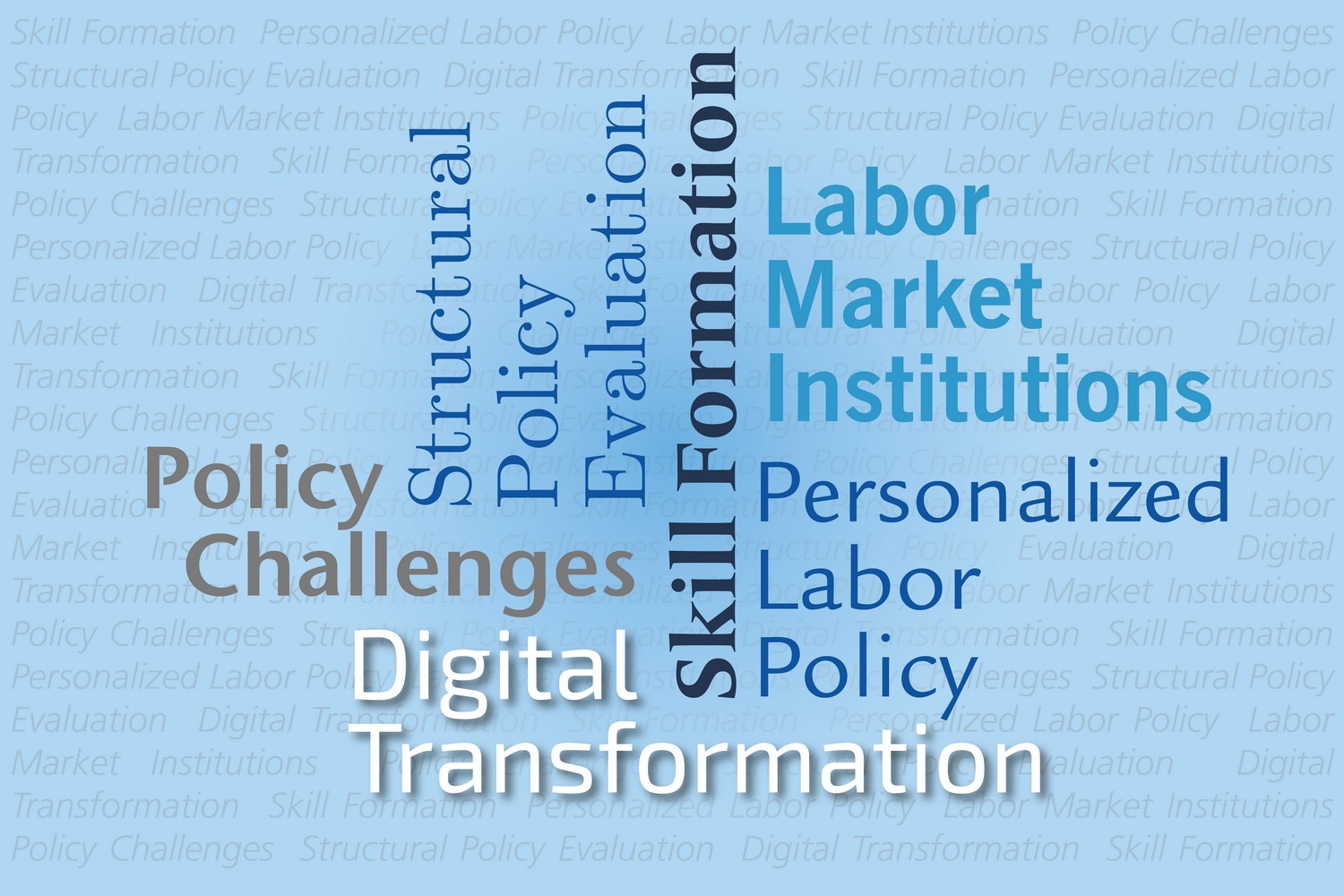IZA has established six new in-house research teams to further sharpen our research focus. Within our four general areas of expertise, these teams will explore key aspects of the changing world of work from a national and international perspective.
Shaping a joint research agenda will enable the teams to exploit the synergies needed to produce top-quality research output. They also benefit from collaboration opportunities with over 1,600 members of our global IZA research network.
Our goal is to respond swiftly to new research questions in academic science and policy advice in order to deliver evidence-based answers. Led by experienced researchers, the teams will cover topical issues ranging from digitalization and skill formation to institutional changes, strategic policy challenges, and the influence of human behavior on the effectiveness of labor market policies.
- The “Digital Transformation” team analyzes how the trend towards digitalization and automation affects the labor market, and how firms and workers adapt to these technological changes.
- The “Skill Formation” team examines the competencies that the workers of the future will need in order to succeed in changing labor markets.
- The “Personalized Labor Policy” team studies how to improve the effectiveness of labor market programs by tailoring policy instruments to the preferences, backgrounds, and needs of different population groups.
- The “Policy Challenges” team focuses on the implications of the changing world of work for the design and reform of labor market institutions.
- The “Labor Market Institutions” team adopts an international comparative perspective in exploring how institutional arrangements and reforms influence labor market structures and dynamics.
- The “Structural Policy Evaluation” team develops a dynamic simulation model for ex-ante policy evaluation based on a behavioral approach.
Strengthening the institute’s profile in empirical labor economics, our new research teams underscore IZA’s role as a “bridge-builder” that aims at expanding the scientific knowledge base and making it accessible for labor market policy practitioners.
